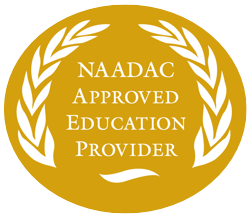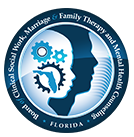We do not respond to voicemails. If we do not answer, we are on the line with another client. Please text or email us. We respond throughout the day or attempt to call again at another time.
Compliance and Risk Management for Mental Health and Substance Abuse Facilities
Compliance and risk management are critical in mental health and substance abuse facilities because they ensure the safety, privacy, and ethical treatment of vulnerable patient populations while protecting the facility from legal and operational risks. Compliance ensures that facilities adhere to federal, state, and local regulations, such as HIPAA and 42 CFR Part 2, safeguarding patient information and ensuring quality care. Risk management involves identifying potential hazards, mitigating risks through staff training and process improvements, and preparing for emergencies. This course explores the essential elements of compliance and risk management, including the development of compliance programs, regular staff training on state-specific regulations, and strategies for preventing and responding to risks. By addressing these areas, the course equips healthcare providers with the tools and knowledge needed to maintain legal, ethical, and safe environments for both patients and staff.
This course will award 1 continuing education hour.
Please see the board approval box for course approvals.Course Objectives
- Define the principles of compliance and their importance in mental health and substance abuse facilities.
- Explain the key federal and state regulations that govern facility operations.
- Identify potential risks in patient care and facility operations through risk assessment strategies.
- Develop effective compliance programs, including policies, procedures, and oversight mechanisms.
- Implement risk mitigation strategies and corrective actions after incidents.
- Understand the importance of staff training on state-specific laws and licensing requirements.
- Prepare comprehensive emergency response plans for natural disasters, violence, and medical emergencies.
- Conduct regular audits and risk assessments to ensure ongoing compliance and safety.
- Analyze legal and ethical considerations, including patient rights, confidentiality, and mandatory reporting.
- Foster a culture of accountability and safety through continuous improvement and risk management.
Board Approvals
National Approvals
-
 Association of Social Work Boards (ASWB) (ACE)BaysideCEU.com, #1793, is approved to offer social work continuing education by the Association of Social Work Boards (ASWB) Approved Continuing Education (ACE) program. Organizations, not individual courses, are approved as ACE providers. State and provincial regulatory boards have the final authority to determine whether an individual course may be accepted for continuing education credit. BaysideCEU.com maintains responsibility for this course. ACE provider approval period: 2/4/2026-2/4/2029
Association of Social Work Boards (ASWB) (ACE)BaysideCEU.com, #1793, is approved to offer social work continuing education by the Association of Social Work Boards (ASWB) Approved Continuing Education (ACE) program. Organizations, not individual courses, are approved as ACE providers. State and provincial regulatory boards have the final authority to determine whether an individual course may be accepted for continuing education credit. BaysideCEU.com maintains responsibility for this course. ACE provider approval period: 2/4/2026-2/4/2029 -
 The Association For Addiction Professionals NAADACBayside Continuing Education and Development Provider Number 81892 is a NAADAC Approved Education Provider for educational credits. NAADAC Provider number 81892 is responsible for all aspects of the programming.
The Association For Addiction Professionals NAADACBayside Continuing Education and Development Provider Number 81892 is a NAADAC Approved Education Provider for educational credits. NAADAC Provider number 81892 is responsible for all aspects of the programming. -
 The National Board For Certified Counselors NBCCBaysideCEU has been approved by NBCC as an Approved Continuing Education Provider, ACEP #6098. Programs that do not qualify for NBCC credit are clearly identified. BaysideCEU is solely responsible for all aspects of the programs.
The National Board For Certified Counselors NBCCBaysideCEU has been approved by NBCC as an Approved Continuing Education Provider, ACEP #6098. Programs that do not qualify for NBCC credit are clearly identified. BaysideCEU is solely responsible for all aspects of the programs.
State Approvals
-
 Florida Board of CSW, MFT, MHCFlorida Board of CSW, MFT, MHC Provider Number 726
Florida Board of CSW, MFT, MHCFlorida Board of CSW, MFT, MHC Provider Number 726
Information
- Relevance: This course is relevant for counselors and therapists who work in mental health and substance abuse facilities.
- Content Level: Intermediate
- Course Format: This course is offered as a self-paced distance learning format (reading-based online activity)
- System Requirements: This course is offered online. Internet connection required.
- Course Completion Information: To earn continuing education credit, professionals must register and pay the fee for the course. They must read the content and demonstrate understanding by earning a minimum score of 70 percent on testing materials. The certificate of completion will be able to be downloaded after the above is completed. Refunds will be granted upon request with the withdrawal of credit for the course. For questions, concerns, or to request special accommodations, please call 866-863-4225 or email ContactUs@BaysideCEU.com.
- CEBroker Course ID: 1279958
- Credit Hours: 1


